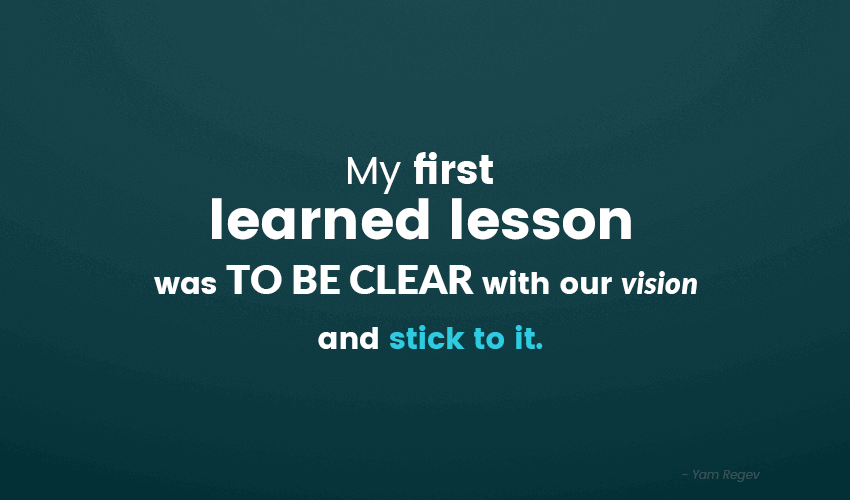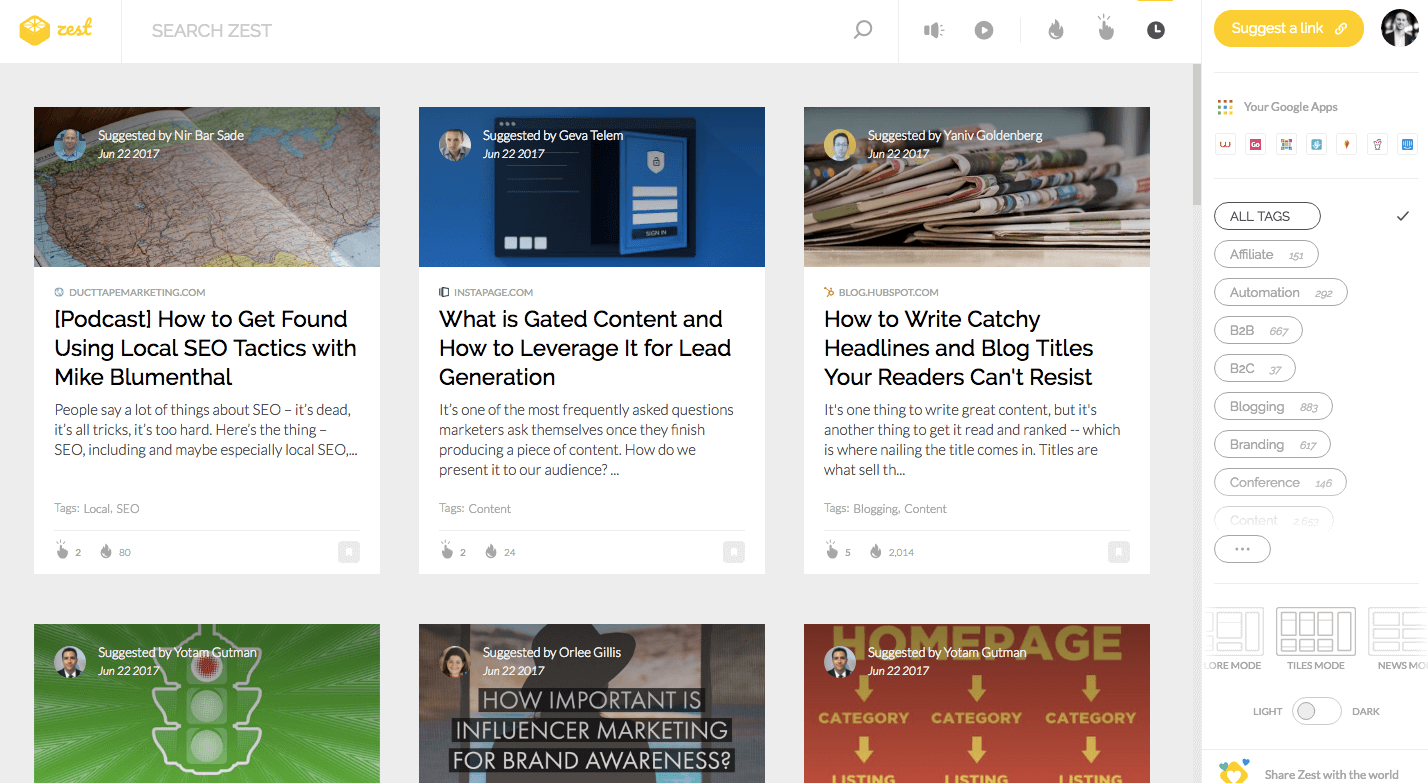It’s 2026, we’re in an even more rapidly evolving business landscape, and startups are facing immense challenges and competition. To thrive and scale efficiently, these burgeoning companies must excel in managing their most valuable asset—customer relationships. This is where Customer Relationship Management (CRM) software platforms become indispensable. A CRM does more than just store contact information; it enables startups to track customer interactions, sales opportunities, and engagements across multiple channels. By leveraging a CRM, startups can anticipate customer needs, tailor their marketing efforts, and streamline their sales processes, thereby enhancing customer satisfaction and loyalty. Implementing a robust CRM system is not merely a technological upgrade; it’s a strategic investment in the foundation of a startup’s growth.
Key Takeaways
- Essential CRM Features: Identify the critical functionalities that a CRM should offer to effectively support a startup’s operations.
- Enhancing Customer Engagement: Learn how CRMs help improve interactions with customers, fostering better relationships and loyalty.
- Cost Considerations: Understand the investment involved and expected ROI from implementing a CRM system tailored to startup needs.
- CRM Scalability: Evaluate how CRM solutions can grow with your startup, ensuring they remain effective as your business expands.
- Integration Capabilities: Discover the importance of choosing a CRM that integrates well with existing tools to streamline operations.
What is CRM Software?
A Customer Relationship Management (CRM) software platform is a technological framework that enables an organization to manage all its interactions with current and potential customers. The core of CRM is to build a repository of customer data that integrates and automates sales, marketing, and customer support. This unified approach ensures that every customer interaction adds value and strengthens the relationship.
Key Features of CRM Software
CRM software platform offers a range of features designed to optimize customer interaction and business processes. Essential features include:
- Contact Management: Stores comprehensive contact information such as names, addresses, social media accounts, and communication preferences in an organized manner.
- Interaction Tracking: Keeps a log of every interaction with the customer, including emails, phone calls, and face-to-face meetings, providing a holistic view of the customer journey.
- Lead Management: Facilitates tracking of leads through the sales pipeline, from initial contact to conversion, optimizing marketing strategies and improving conversion rates.
- Workflow Automation: Automates routine tasks like sending follow-up emails, updating contact records, and issuing alerts when important events occur, enhancing operational efficiency.
- Reporting and Analytics: Generates detailed reports on sales trends, customer behavior, and campaign effectiveness, offering actionable insights to drive strategic decisions.
Benefits of Using a CRM for Startups
For startups, a CRM system is pivotal in scaling operations and enhancing productivity. Key benefits include:
- Enhanced Customer Insights: With rich data on customer interactions, startups can tailor their offerings to better meet the needs and preferences of their target audience.
- Improved Efficiency: Automation of mundane tasks frees up time for teams to focus on more strategic activities that contribute directly to business growth.
- Scalability: CRM systems can grow with the business, adding functionalities and integrations as needed without disrupting existing operations.
- Better Customer Retention: By providing personalized experiences and proactive service, startups can increase customer loyalty and lifetime value.
Evaluating Your Startup’s Needs When Choosing a CRM
Selecting the right CRM for a startup involves a thorough assessment of current and future needs. Here’s how to approach this evaluation:
Assessing Current Requirements
Start by mapping out your customer journey from initial awareness to post-sale support. Identify the touchpoints where interactions occur and the information that needs to be captured. This will help determine the basic features your CRM must have.
Consider Scalability and Integration
As your startup grows, so will your customer base and your need for more sophisticated CRM features. Choose a CRM that not only meets current needs but can also scale seamlessly as your business expands. Additionally, consider the CRM’s ability to integrate with other tools already in use, such as email marketing software, customer service platforms, and financial systems, ensuring smooth interoperability.
Evaluate CRM Costs vs. CRM Benefits
While cost is a critical factor for startups, it’s important to evaluate the potential ROI a CRM system can deliver. An inexpensive CRM may save costs initially but could lack essential features that drive growth. Conversely, a more expensive system with extensive features might offer a better long-term value by boosting customer satisfaction and retention.
4 Best CRM for Startups
Selecting the right CRM system is pivotal for a startup’s success. A good CRM not only fits the current business model but also adapts to evolving needs. Here, we delve into some of the top CRM options that are well-suited for startups, focusing on features, scalability, and cost-effectiveness.
Teamgate CRM for Startups

Teamgate CRM offers a comprehensive solution that combines ease of use with powerful sales insights and tools, making it our preferred choice for startups.
Teamgate CRM Features
Teamgate provides an all-in-one sales platform with capabilities such as lead scoring, advanced analytics, and detailed customer insights. It supports complete sales funnel management from lead capture to closing, enhanced by its strong integration capabilities with marketing and service platforms.
Teamgate CRM Pricing Model
Teamgate CRM has a straightforward pricing structure which includes a FREE and two paid subscription offerings that scale according to feature set, making it easy for startups to choose a plan that best fits their needs without overcommitting resources.
Teamgate CRM Pros
User-friendly interface, insightful sales analytics, effective lead management, clear pricing structure, and award-winning customer support.
Teamgate CRM Cons
Less well-known than larger competitors, which may affect third-party integration options.
You can get started with Teamgate CRM today for FREE.
HubSpot CRM for Startups

HubSpot CRM is renowned for its user-friendliness and cost-effectiveness, making it ideal for startups. It offers a free plan with basic features, which can be expanded with premium modules as the business grows.
HubSpot CRM Features
HubSpot provides tools for contact management, deal and task management, and email tracking. It integrates seamlessly with the broader HubSpot ecosystem, which includes marketing, sales, and service hubs.
HubSpot CRM Pricing Model
HubSpot CRM is currently free for basic features, with paid upgrades for additional marketing, sales, and customer service features.
HubSpot CRM Pros
Easy to use, minimal setup required, excellent for inbound marketing strategies.
HubSpot CRM Cons
Advanced features require paid plans, which can become expensive as more functionalities are needed and your business grows.
Copper CRM for Startups

Copper CRM is specifically designed for integration with Google Workspace, making it a perfect fit for startups that rely heavily on Google tools.
Copper CRM Features
Copper CRM excels in seamless integration with Google Workspace, automatically capturing data from emails and other interactions within the Google ecosystem. It offers robust lead and contact management, opportunity tracking, and task management.
Copper CRM Pricing Model
Copper offers multiple tiers, starting from basic to advanced, accommodating different startup sizes and budgets.
Copper CRM Pros
Deep integration with Google Workspace, intuitive user interface, and efficient data handling.
Copper CRM Cons
Primarily reliant on Google Workspace for full functionality, which might not suit all startups.
Comparing CRM Systems
When comparing these CRM systems, startups should consider their specific needs related to customer interaction complexity, anticipated growth rate, and the existing tech stack. HubSpot is great for startups focused on inbound marketing strategies and those who need a cost-effective solution with a gentle learning curve. Copper is ideal for teams deeply embedded in Google Workspace, offering unique efficiencies. Teamgate stands out for its customer support and scalability, making it an ideal all-around choice for startups looking to integrate deep sales insights with practical usability, without worrying about significant price increases as your business grows.
Implementing a CRM System in Your Startup
Implementing a CRM system involves more than just software installation. It requires a strategic approach to ensure that the system integrates smoothly with your business processes and truly enhances your operational efficiency.
CRM Implementation Guide
- Preparation and Planning:
- Define clear objectives for what you want your CRM to achieve (e.g., improved customer data management, streamlined sales processes).
- Ensure buy-in from all stakeholders, particularly those who will use the CRM daily.
- Choosing the Right System:
- Based on the evaluations in the previous section, select a CRM that fits your business needs and budget.
- Consider a vendor that offers comprehensive support during and after implementation.
- Customization and Integration:
- Customize the CRM to fit your business processes. This might involve setting up custom fields, sales stages, and integration with existing tools (e.g., email systems, accounting software).
- Test the system with a small group before full deployment to ensure it works as expected.
- Training and Adoption:
- Conduct thorough training sessions for all users. Make sure everyone understands how to use the CRM to perform their specific tasks.
- Encourage feedback and be prepared to make adjustments to improve usability.
- Evaluation and Scaling:
- Regularly evaluate the CRM’s performance against your initial objectives.
- Scale your CRM setup as your business grows, adding new features and users as needed.
Tips for Successful CRM Implementation
- Start small with essential features to avoid overwhelming your team.
- Focus on data quality from the start—ensure that all customer data entered into the CRM is accurate and comprehensive.
- Regularly review and refine your CRM processes to align with changing business needs.
By methodically choosing and implementing the right CRM, startups can ensure they lay a strong foundation for customer relationship management, driving growth and customer satisfaction.
Challenges and Solutions When Using CRM Systems
Implementing a CRM system can revolutionize a startup’s approach to customer relationship management, but it’s not without its challenges. Understanding these potential pitfalls and how to navigate them is crucial for maximizing the benefits of your CRM investment.
Common CRM Challenges for Startups
- User Adoption:
- Challenge: Resistance from employees who are accustomed to traditional methods of managing customer relationships or who may feel overwhelmed by new technologies.
- Solution: Foster a culture of transparency and involvement in the selection and implementation process. Provide comprehensive training and demonstrate the personal benefits each team member will gain from the CRM, such as saving time and reducing manual tasks.
- Data Management:
- Challenge: Inconsistent data entry, outdated information, and data silos can reduce the effectiveness of a CRM system.
- Solution: Establish clear data entry standards and regular audits to ensure data quality. Utilize automation features to minimize manual data entry errors and integrate the CRM with other systems to centralize data.
- Cost Management:
- Challenge: Balancing the cost of a CRM with the features and scalability that a startup needs can be difficult, especially with a limited budget.
- Solution: Start with a basic, cost-effective CRM plan that covers essential features. As the startup grows and the budget allows, invest in additional features that address specific needs. Ensure you research future CRM costs associated with the scaling of your business.
- Customization Complexity:
- Challenge: Over-customization can make the system complex and difficult to maintain and upgrade.
- Solution: Limit customization to what is truly necessary. Prioritize configurations that add significant value and keep the system user-friendly.
Implementing Solutions Effectively
For each of these challenges, having a strategic approach in place can significantly ease the CRM implementation process. Regularly revisiting these strategies and adapting them based on ongoing feedback and evolving business needs is essential. Additionally, leveraging a CRM’s analytics to monitor usage and effectiveness can help identify areas where additional support or training is needed.
Conclusion: The Strategic Value of CRM in Startup Growth
In conclusion, choosing and implementing the right CRM system is a strategic decision that can dramatically affect a startup’s ability to scale and succeed. A CRM system is not just a tool for managing customer data; it’s a comprehensive platform that supports various aspects of business operations, including sales, marketing, customer support, and feedback management.
Recap of Key Points
- CRM systems are vital for managing detailed customer interactions and supporting the sales process from lead to loyalty.
- Evaluating needs and choosing the right CRM requires understanding both current and future business requirements, ensuring the CRM can scale with the startup.
- Implementation should be strategic, involving careful planning, stakeholder involvement, and ongoing training to ensure widespread adoption and maximum utility.
- Addressing common challenges proactively can enhance the effectiveness of a CRM system and ensure it delivers the expected business value.
Final Thoughts
As startups continue to navigate the complexities of customer relationship management, the role of a CRM system becomes increasingly central. By effectively implementing a CRM system, startups not only enhance their operational efficiencies but also build stronger, more rewarding relationships with their customers. This, in turn, drives growth, increases customer satisfaction, and solidifies the startup’s position in the market. Thus, investing in a robust CRM system and ensuring its effective use is not merely an operational decision—it’s a strategic imperative for sustained success.
If you want to get started with Capterra’s Number 1 Value-for-Money CRM of 2024, check out Teamgate CRM today!
FAQs: CRM for Startups
- What are the essential features a startup should look for in a CRM system?
- Startups should prioritize CRMs that offer robust contact management, lead tracking, sales forecasting, and customer interaction logs. Automated workflow and comprehensive reporting features are also critical to drive efficiency and gain actionable insights.
- How can CRM tools enhance customer engagement for a new business?
- CRM tools help new businesses by centralizing customer interactions, providing detailed insights into customer preferences and behaviors, and facilitating personalized communication strategies. This enhances customer experience and engagement across multiple touchpoints.
- What are the cost considerations when choosing a CRM for a small business?
- When evaluating CRMs, consider both upfront costs and ongoing expenses. Look for transparent pricing models that scale with usage. Assess potential returns through improved efficiency and increased sales, ensuring the chosen CRM offers a good investment return.
- Can CRM systems help startups increase sales and revenue?
- Yes, CRMs assist in increasing sales by efficiently managing leads, improving follow-ups, and optimizing sales processes through data-driven insights. This streamlined approach reduces the sales cycle and increases conversion rates, boosting overall revenue.
- What is the role of CRM in managing customer data for startups?
- A CRM organizes and stores all customer data in a centralized location, making it accessible and actionable. This organization helps startups segment customers, track sales activities, and tailor marketing efforts based on collected data.
- How do CRM solutions support marketing efforts in startups?
- CRMs enhance marketing by integrating customer data with marketing strategies, enabling targeted campaigns, lead generation, and performance tracking. This alignment helps startups maximize their marketing ROI and adapt strategies based on real-time feedback.
- Are there CRM options that integrate well with other tools commonly used by startups?
- Many CRM systems offer extensive integration capabilities with popular tools like email marketing platforms, social media, and accounting software. Select a CRM that seamlessly integrates with your existing tech stack to ensure fluid data flow and usability.
- How scalable are CRM systems for growing startups?
- Scalability in CRM systems is crucial for startups. Choose a CRM that can handle an increasing amount of data and more complex business processes without requiring a system overhaul. Look for solutions that offer modular add-ons and flexible pricing plans.
- What training is required for startup teams to effectively use a CRM?
- Effective CRM use requires initial comprehensive training focusing on system capabilities and best practices. Ongoing support and refresher courses are also essential to help teams maximize the tool’s benefits as features evolve and business needs change.
- What are the common challenges startups face when implementing a CRM, and how can they be overcome?
- Common challenges include user resistance, data migration issues, and underutilization. Overcome these by involving key team members in the CRM selection process, ensuring robust training programs are in place, and choosing CRMs with excellent customer support and user-friendly interfaces.







